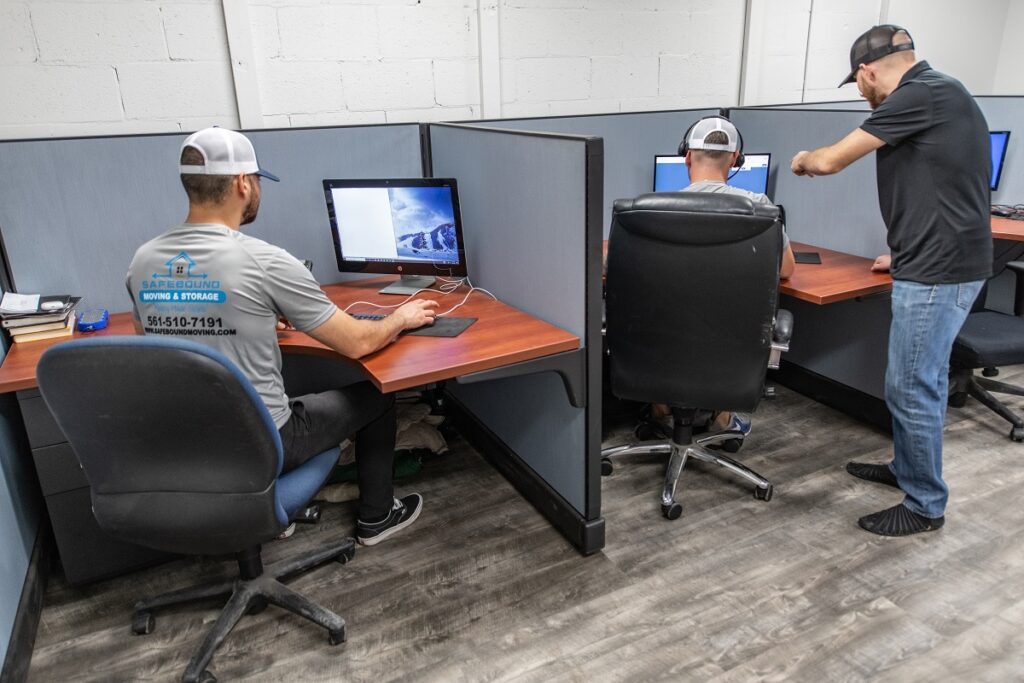
This is a valid concern if you are contemplating a relocation. Probably, you have pondered this query. Several negative evaluations and complaints are lodged annually against moving companies for damage to personal belongings during the relocation. Considering this, it is entirely acceptable to experience a mild sense of apprehension regarding entrusting strangers with your entire assortment of domestic goods. Consider the possibility that your belongings will be misplaced, damaged, or destroyed during the move.
Fortunately, there are numerous precautions you can take to safeguard your relocation and be ready for this type of circumstance. One such method is to familiarize yourself with the different options for moving insurance and valuation coverage that are at your disposal. A fundamental synopsis of relocating insurance and valuation is provided in the following section. Please continue reading to discover the significant distinctions between these two alternatives.
When signing a moving contract, the moving company may provide you with an assortment of liability coverage tiers, which are referred to as “valuation coverage.” Simply put, valuation coverage indicates the extent to which your moving company is willing to assume liability should your possessions be lost or damaged in transit. The amount that the removalists will reimburse you if your belongings are lost or damaged during their transportation is determined by the level of liability.
The coverage provided by these liability options is, however, limited. Further, it is critical to specify that valuation coverage does not constitute insurance. Indeed, the concept that the majority of individuals associated with “moving insurance” is merely valuation coverage that the moving company provides.

Valet valuation coverage does not extend to all items contained within the truck’s rear. For example, if your belongings are damaged in a manner beyond the control of your mover, the likelihood of receiving appropriate compensation decreases. Further instances of factors that may restrict the liability of a mover are as follows:
Rather than employing movers to pack your belongings, pack your boxes. The FMCSA (Federal Motor Carrier Safety Administration) states that “establishing a claim against the mover for the boxes you pack may be more difficult if the items you pack are damaged.”
Loss of merchandise resulting from an “Act of God” (mother nature) calamity, including fire, hurricane, earthquake, or tornado.
Neglecting to communicate (in writing) to the removalists any items of exceptional value before the relocation.
Not expeditiously reporting any loss or damage to objects after the relocation. The standard timeframe for submitting a written claim is nine months; however, for specifics, consult your moving company.
According to the FMCSA, packing “perishable, dangerous, or hazardous materials in your household goods without your mover’s knowledge.”
Read More: Expert Tips for Hiring Quality Movers for Mastering Your Move
By federal regulation, all interstate carriers must provide clients with two liability alternatives: Released Value Protection and Full Value Protection. A brief synopsis follows.
The cost of your interstate relocation includes Released Value Protection by default. 60 cents per pound per item is the federal mandate for Released Value Protection during interstate shipments. This means that in the event of an injury occurring to a 10-pound valuable during the relocation, the value of the item will be determined by multiplying its weight by 0.60% (0.60% x 10). Irrespective of the initial expense of the item, the moving company is responsible for this dollar amount ($6).
Although this type of fundamental coverage is complimentary for the customer (a major advantage! ), it is regarded as the bare minimum. As an illustration, should the movers damage your 365-pound refrigerator, which originally cost $1,400 to purchase, their liability will be limited to $219 under the terms of this base coverage.
This variant of fundamental protection is incorporated into the hourly or fixed rate for local relocations as well. Check with the moving company regarding the minimum coverage amount applicable to your state for intrastate transfers, as this varies from state to state. One instance of this is the recent increase in the minimum coverage fee by the State of New Jersey from sixty cents per pound to one dollar per pound. This increase in New Jersey’s coverage could inspire other states to raise their minimum coverage requirements, whereas the majority of states continue to mandate that moving firms provide 60 cents per pound.
Interstate movers provide the second form of valuation protection, known as “Full Value Protection.” If a product is lost or damaged during transport, this degree of liability provides clients with significantly enhanced safeguards. Still, it falls short of the level of comprehensiveness that insurance provides. Under Full Value Protection, your hauler is solely responsible for the present (or depreciated) worth of your belongings. Put simply, a mover will solely compensate you for the financial value of the item. In other words, should you have acquired a valuable item a decade ago, but its market value has since decreased substantially (in terms of money), the moving company’s compensation will be limited to the item’s present dollar value.
If a mover misplaces or damages an item during the relocation, the FMCSA specifies three possible courses of action:
A financial settlement equal to the current market replacement value or the cost of repair should be reached. Actual Cash Value coverage is another name given to this degree of liability.
This form of protection contains a loophole in that movers are not liable for “items of extraordinary value” unless the client notifies the movers in writing. Items that are valued at an amount exceeding $100 per pound are classified as articles of extraordinary value, according to the FMCSA. Consider exquisite china, antiques, collectibles, and jewelry. Obtain specifics regarding the cost of Full Value Protection from your moving company, as it differs between providers.
Options regarding coverage for local carriers differ between moving companies. Numerous local carriers additionally provide clients with the option of Full Value Protection. Before entering into any agreement, it is critical to thoroughly discuss your liability options with the moving company.

Customers have the option to purchase additional relocation insurance in addition to valuation coverage. I strongly advise it if you are in the process of relocating valuable products. As stated previously, valuation coverage is inadequate and does not offer complete reparation to clients if items are lost or damaged. Many individuals therefore opt to acquire relocation insurance via a third-party insurance provider.
As noted by Trusted Choice, moving insurance “can be utilized either as a supplement to the protection offered by a moving company or to ensure the safety of one’s belongings during an in-house relocation.” Goods are frequently protected for a maximum of 90 days during transit or storage under the terms of numerous moving insurance policies. The extent of coverage is contingent upon the particular insurance provider and policy in question.
Read More: A Brief Guide to Understanding Different Types of Moving Estimates
Whether or not your relocating insurance policy provides coverage is contingent on its particulars. Moving insurance generally provides coverage for any harm or loss of domestic items during the process of transportation (and potentially storage as well).
Additionally, Electrical and Mechanical Derangement add-on policies are available from MovingInsurance.com. This supplementary alternative protects against internal harm to mechanical and electronic devices during transportation, in the absence of visible physical damage.